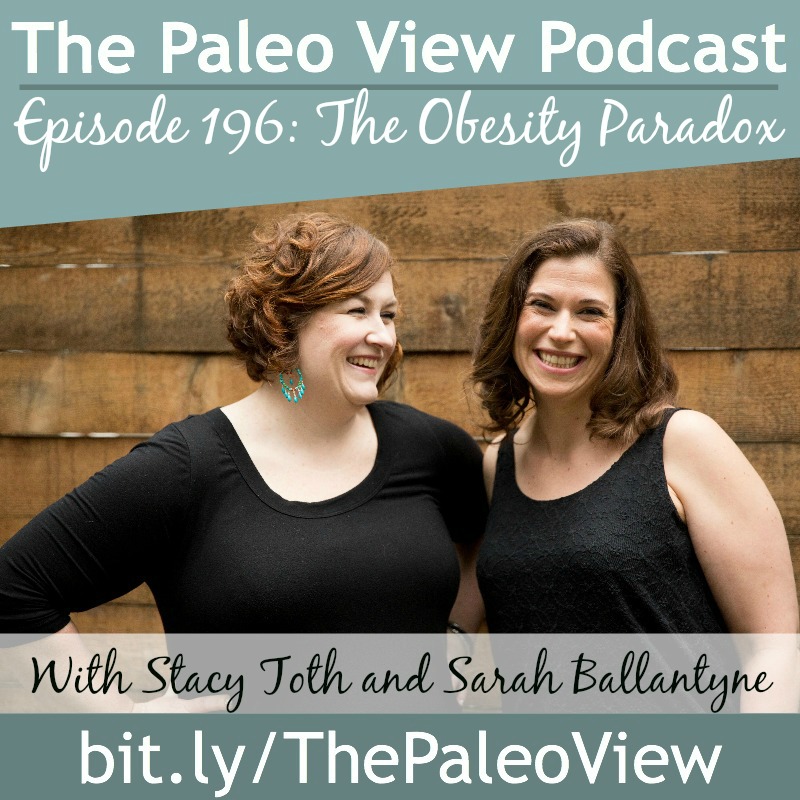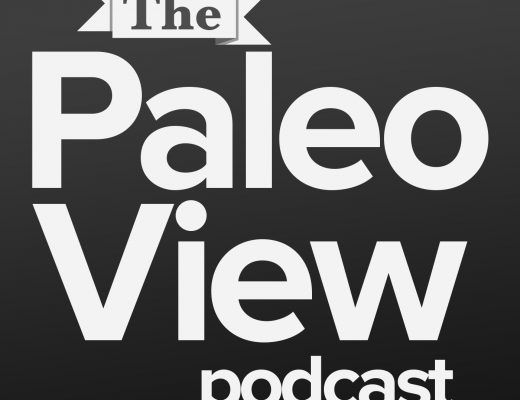Ep. 196, The Obesity Paradox
On this episode of The Paleo View, Stacy and Sarah continue their discussion on the latest in weight loss research, touching on the obesity paradox and the studies exploring this concept.
Click the picture above to be taken to iTunes
or download and listen by clicking the PodBean Player below
![]()
If you enjoy the show, please review it in iTunes!
The Paleo View (TPV), Episode 196, The Obesity Paradox
- Intro (0:00)
- News and Views (1:18)
- Stacy’s preparation for her trip
- What she can say in Italian
- Unplugging while on the cruise
- Stacy will do a food recap and share them when she can
- Stacy’s preparation for her trip
- The Latest in Weight Loss Research Continued (7:36)
- For Sarah weight loss maintenance is her favorite element that the Paleo lifestyle offers
- This week Stacy and Sarah will be talking about the obesity paradox
- Both Stacy and Sarah receive questions from listeners about hitting a weight loss plateau, and this is where getting healthy to get thin becomes a core idea
- Research is starting to show that having that extra 20 to 30 pounds may actually make you healthier – the healthiest place to be is overweight, not obese or underweight
- The studies that have been done on this concept
- The obesity paradox came from the observation that people who have a BMI of 25 to 30 (classified as overweight) have the lowest rate of all cause mortality
- Stacy points out the question – how is the ideal weight defined? and by who?
- As studies dig into this concept, they have found that obese people have a higher risk of many diseases, but obese people once they have a chronic illness they have a higher chance of surviving it
- There are two sides to this
- One, that being overweight or obese increases your survival from chronic illness, even though it increases chronic illness rates
- And that being overweight is this magic place where there is a much lower all cause mortality
- The sweet spot – where we have the longest life span and the lowest disease risk, on average, is slightly overweight, not underweight or obese
- Sarah is not a fan of the BMI, and Stacy has her doubts in its validity as well
- Stacy pointed out some examples of BMI limitations
- Sarah explained why the BMI is still used, and notes that some medical communities are trying to use body fat percentage as a new measurement
- There is actually a recommendation to hit the senior years a little bit heavier and the medical benefits this weight brings
- The weight we naturally gain as we get older – does it prepare us for those older ages where it is beneficial to be heavier?
- Another study that was done on fat storage and longevity
- The study was done on yeast to determine how having an increase in body fat has a genetic effect prolonging life span – which might be behind the obesity paradox
- What Sarah finds fascinating about the obesity paradox is what this body of research is starting to show
- That 10 to 30 pounds that just won’t come off is probably a lot better for us to keep on our bodies and we should learn to embrace it
- We don’t need more weight loss strategies or tools – we need to instead redefine what the goal is
- Stacy’s thoughts on redefining the goal to better fulfill optimal health
- We don’t need to have one box that defines what looks attractive – it is ok for us to look different, and for optimal health to take different shape in different body styles
- We will be back next week with some more awesomeness, and will possibly keep discussing this topic
- Thanks again for listening!
- Outro (37:55)





